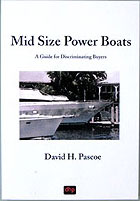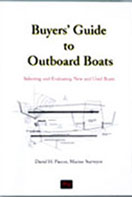Back to The Future of Fuel Prices
Venezuela
by David Pascoe
Posted September 27, 2006
his and other three texts below contain short summaries on the status of the nation states that now have, and will in the future, the greatest effect on oil prices. They have been kept separate from the body of the report The Future of Fuel Prices because they are essentially political in nature.
The situation with Venezuela would, on surface appearances, seem to be the one big sore spot in our oil future. As of this writing, we got a real good look at what the future might hold in store when, on September 20, 2006, the Venezuelan dictator launched a vituperative verbal attack against George Bush and the U.S. in general at the United Nations in New York. He demonstrated what a wise man he is by attacking his number one customer for his country's only product, oil.
Here are some basic facts about Venezuela and its oil:
70% of Venezuela's oil exports go to the U.S.
Oil accounts for 50% of the Venezuelan economy.
Venezuela owns CITGO which has five refineries in the U.S. and partnerships with several U.S. refiners in the Caribbean, which accounts for 4% of our gasoline supply.
The Venezuelan national oil company purchased CITGO in 1997, prior to Chavez.
Of the 13 million barrels per day that the U.S. imports, Venezuela supplies 1.5 mbd, or 8.6%.
The nation's oil production is in decline from a high of 3.1 mbd in '02 to 2.6 mbd in '05.
Half of the nation's oil production is by foreign operated facilities.
Chavez has seized foreign assets and oil fields including those of France and Italy.
Chavez is a de facto dictator who controls his nation by the use of the army and purging and manipulating the previously democratic government, and now maintains only a puppet democracy for appearance purposes.
As with the mullahs of Iran, Chavez has more interest in promoting his power on the world stage than he does in running his own country. He's aligned himself with every thuggish dictator in the world, presenting himself as a mirror image of Mussolini, replete with the same misplaced megalomania. But like Mussolini, he is more a danger to himself and Venezuela than anyone else. Unfortunately, he is unaware of his limitations.
The man's sufficiently irrational that agencies of the U.S. government agencies, such as the GAO, have been considering making studies of what to do should Chavez try to punish the US by withdrawing his oil.
Chavez has made the same mistake his buddy Mr. Jihad of Iran did: he purged the oil industry of all politically undesirable workers, amounting to 40% of total employees, most in management and engineering, thereby depriving the industry of its most valuable employees. This is attributed as the primary reason for the decline. Again, like his newfound friend, Chavez is driving out all foreign companies from a third world nation that hasn't the expertise of maintaining its industry, yet alone expanding it.
Chavez has forced existing contractors to accept new contracts that impose economically impossible conditions and taxes, apparently as a means of driving them out.
Based on the man's behavior it is highly likely that the man is going to force a showdown with the U.S. Those who think this won't happen base their beliefs on the argument that any such actions would hurt Venezuela more than the U.S. This is certainly true but Chavez has demonstrated that rationality is no check on his behavior.
The GAO Study estimates that a worse case scenario with Chavez cutting off all oil to the U.S., plus shutting down his five refineries could result in a short term increase in oil price of $11 bbl and up to $1.00 gal of gas. The later figure was based on Katrina figures that are badly skewed by other factors that were not considered. A more reasonable estimate would 25-50 cents per gallon. This impact would be rather short-lived (a period I would estimate to be around three months) and would rapidly decline as the lost production would soon be replaced by other sources with a longer term effect more likely 15-20 cents/gal. Moreover, in the event of Chavez shutting down his refineries, it is highly probable that our government would seize them under national security guidelines, so that production would rather quickly resume. Fortunately, CITGO refineries are all staffed with U.S. workers so there'd be no problem in that respect, and would further serve as rationale for seizure.
Working against Chavez's ambitions is that fact that Venezuela's oil is poor quality, heavy, sour crude. The U.S. located CITCO refineries are among a very few world wide capable of handling this oil. Therefore Chavez won't easily find new markets for his oil. Moreover, a major reason why U.S. companies buy it is because Venezuela is so close and transportation costs are much less. Ergo he'd probably have to sell it to China at a significantly lower cost. Indeed, Chavez has made announcements of deals with
China and many others, the problem here being that the man engages in a great deal of international propaganda.
In summary, although on the face of things it seems frightening that an irrational clown like Chavez is in control of five U.S. refineries, that is only 4% of U.S. capacity so he actually do a little damage to our economy, and only for a very short time. Venezuela's oil production is likely to decline in any case.
- The Iranian Spectre
- Iraq
- Venezuela
- China & India
Back to The Future of Fuel Prices
Posted September 27, 2006
 Visit davidpascoe.com for his power boat books
Visit davidpascoe.com for his power boat books David Pascoe - Biography











David Pascoe is a second generation marine surveyor in his family who began his surveying career at age 16 as an apprentice in 1965 as the era of wooden boats was drawing to a close.
Certified by the National Association of Marine Surveyors in 1972, he has conducted over 5,000 pre purchase surveys in addition to having conducted hundreds of boating accident investigations, including fires, sinkings, hull failures and machinery failure analysis.
Over forty years of knowledge and experience are brought to bear in following books. David Pascoe is the author of:
In addition to readers in the United States, boaters and boat industry professionals worldwide from nearly 80 countries have purchased David Pascoe's books, since introduction of his first book in 2001.
In 2012, David Pascoe has retired from marine surveying business at age 65.
On November 23rd, 2018, David Pascoe has passed away at age 71.
Biography - Long version